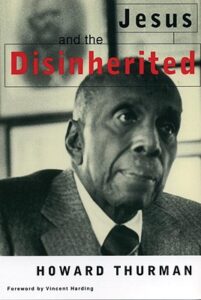First, read the text: John 2:13-22, Jesus turning over tables in the temple. (I also reference our first reading from Exodus 20:1-17, God giving the ten commandments.)
Sermons are a momentary event – and mine always vary slightly from my written text. If you’d like to hear it – watch the video here – https://fb.watch/44KXCsnWZ5/ – the sermon begins at about 28:40.
Here’s the sermon text:
How do you feel when someone yells? (Ok, that’s a topic for your therapist.) But I wonder if our response to Jesus’ scene at the temple may have more to do with how you feel about disruptive displays of anger in general than some deeply considered theology.
Part of our response is culturally ingrained. What comes to mind (a very specific, sily reference) is Charlotte on Sex and The City – “We’re WASPS. WASPS don’t yell. It’s genetic.” Which is not true, or helpful – the context in the episode was a lack of communication and avoidance of direct conflict between the characters, who maybe should’ve yelled, or at least talked to each other. (WASPS = White Anglo Saxon Protestants, a shorthand also for white, preppy culture.)
You may have strongly held beliefs about when it is ok to use anger, disruption, or force. You may think differently or put those aside here because it’s Jesus. Or the fact that it’s Jesus being angry and disruptive may make it even more unsettling.
It’s hard to parse out how much of this is culture, experience, or situation, in how we view Jesus – God – being angry, Jesus choosing force and raising his voice. If we wonder if that anger could be directed at us, this evokes fear. But often we imagine it directed at our enemies – and hence it evokes a deeper nestling in of our biases – as we create memes or imagine Jesus’ whip of cords aimed only in the direction we would point it.
Some, especially here in DC, may view this story of disruption by force differently after the January 6 violent insurrection at the Capitol. Considering that, you may feel even more internal dissonance, confusion about this scene and what we’re supposed to take from it.
I wish I had an easy explanation. A way to turn down the temperature on this scene and its implications. But then I realize that although he didn’t turn tables or brandish a whip, a lot of Jesus ministry was just as unsettling and disruptive in its original context. Jesus also troubled the waters by talking with women, healing the outcasts and calling out why they were outcast in the first place, by eating with the wrong people, working on the sabbath. The list goes on and on.
When we sing or pray O Come, O Come Emmanuel, how do we imagine Jesus will come? Always gently – the sleeping baby on the straw or silent on the cross? Sharing bread on the hillside? What about when he comes with a hard word, for the healing of the world? So that our neighbors might have bread? Is Jesus’ anger part of God’s body, broken for us?

Is this so-called “cleansing of the temple” scene a cry of the lament of God? Rev. Dr. Otis Moss III, reflecting on the seminal work of Howard Thurman’s book Jesus and the Disinherited, described to Krista Tippett (https://onbeing.org/programs/rev-otis-moss-iii-the-sound-of-the-genuine-traversing-2020-with-the-mystic-of-the-movement-howard-thurman/):
“America has difficulty with lament because we romanticize history. And we’re so drunk on Confederate wine and don’t even realize it, that when you use lament in some communities and for some ears, they hear that as hate. And I respond that I hate the death of George Floyd and the system that created it. And

we have to learn how to lament. Our hearts have to break in the way that God’s heart breaks, in the way that Jesus was lamenting throughout a good portion of his ministry, at what he was witnessing, sometimes turning over tables in anger and in deep pain, or on a tree/cross, saying, “Forgive them. They just don’t know what they are doing.” There’s this lament.”
Sometimes we need to notice what scripture asks us to do. Other times we need to notice what scripture does to us. I’m uncomfortable with Jesus’ anger. Maybe I need to notice that.
It can’t and shouldn’t be simply explained away as Jesus correcting bad business practices. We also need to be careful that we not read it as Jesus railing against Judaism, for this text has been used to prop up anti-Semitism.
The key verb here to me is overturned – Jesus overturns us – makes our stomach turn – and I believe, turns us toward our neighbor. Jesus turns the tables on us – shakes us out of our routines or assumptions (every time I read the Bible – either to comfort me when I’m hurting or disturb me where I’m too comfortable) and says – lift up your heads. Notice.
Notice the lament. Of our neighbor, of our own souls, the ways we are hungry or crying out. Hearing the lament is the only way we’ll hear each other, see the root pain, move toward healing. We need to hear Jesus’ lament, and of every person who cries out – whether we agree or they are even right or wrong to cry out about it. Like the popular #whymychildiscrying there may or may not be an actual problem OR what they say may not actually be the issue – like you’re just tired. But if we don’t listen and address the pain, find out where it comes from, start there, we won’t see healing.
The ten commandments is most often heard as a personal set of rules, a good person checklist. But notice it is actually all about your neighbor. Keeping the commandments protects your neighbor, keeps the community whole. It’s God’s response to the ways in which we often hurt each other, for which God laments – and an invitation to notice and care for each other.
Our faith, our God, and Jesus’ ministry, is a centrifugal force, not centripetal. Yes, faith invites self-examination, but even that, as with the 10 commandments, orients us toward our neighbor. As David Lose describes (http://www.davidlose.net/2015/03/lent-3-b-igniting-centrifugal-force/), our faith spins us out – the turning over tables in the temple was Jesus’ lament that we not just think that God is found in one place – but turning us out to our neighbor and to the world, to find Jesus there.
God *rejoices* when we hear a lament and respond. Want to see Jesus in the world? It’s when our hearts hear the cries, crack open, the Spirit moves, and the world changes. Hold onto this model. Hear the cry – notice – make a change – for the sake of the neighbor. This happens all the time! As little ways as the stranger who hears the lamenting cry of the toddler in the stroller who has dropped their snack cup, spots it and jogs it over it to them.
If we believe victims, hear the laments, it’s the same model – all the way up to something like South Africa’s Truth and Reconciliation Commission. That took a restorative justice approach to a whole nation’s lament and division. Perhaps our country, our world, needs such a movement now.
So this week, notice. Notice the lament – from your own soul, those close to you. But also on the news – listen past the typical rhythms and dogwhistles of our news cycle. Ask yourself – who could this hurt? (See also Ruby Sales’ “Where does it hurt?” https://onbeing.org/programs/ruby-sales-where-does-it-hurt/)
Hear the lament. Then, dear ones, feel empowered. Simply in the act of noticing, you change the world. Name the lament. Who isn’t getting fed? Empathize – look around for the dropped snack cup. We’re picking it up – together.
As a hymn puts it, “For everyone born, a place at the table, to live without fear, and simply to be, to work, to speak out, to witness and worship, for everyone born, the right to be free, and God will delight when we are creators of justice and joy, compassion and peace, yes God will rejoice when we are creators of justice, justice and joy!” (https://www.hopepublishing.com/find-hymns-hw/hw342.aspx) May it be so with us. Amen.

